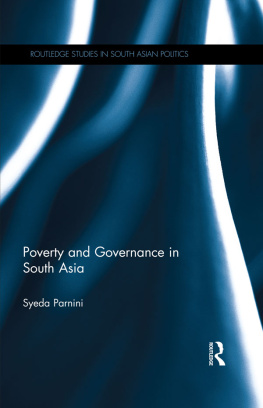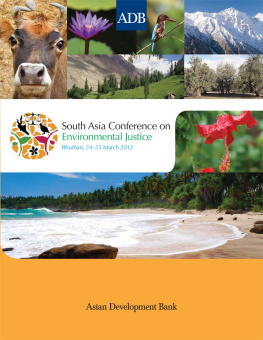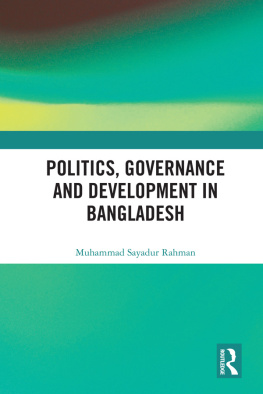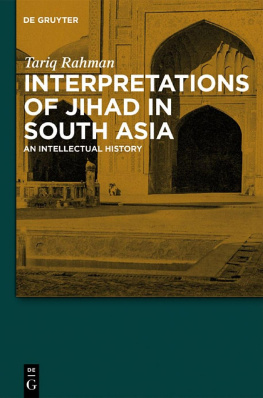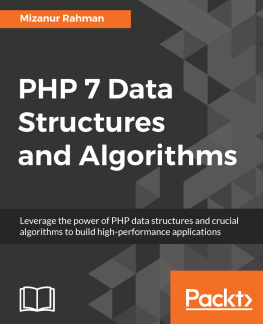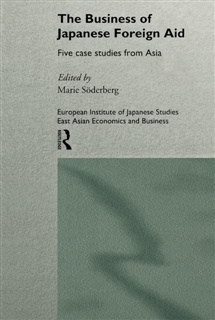Development Agenda and Donor Influence in South Asia
Policy ownership of development agenda emerged as an important aspect in international development cooperation during the 1990s in the wake of evident failures of reform initiatives in developing countries steered by donor agencies, particularly the international financial institutions (IFIs), the World Bank (WB) and the International Monetary Fund (IMF).
The principal focus of this book is to examine Bangladeshs policy ownership in its PRSP by broadly analyzing the dynamics in the formulation process and examining the principal actors contribution to the formulation process. This book also deals with several other dimensions of foreign aid and its changing features including the shifts in WB-IMFs approach to development cooperation. This book argues that the WB-IMF strongly influence Bangladeshs development strategies and agendas and in general the WB-IMF have not changed much in their aid relationship despite clear limitations of their previous reform models. Building on Bangladeshs current level of development the book advocates that Bangladesh needs to adopt a new model for development agenda setting.
Illustrating the influences of donor communities on the creation of development strategies in developing countries, this book presents a macro dynamics of the political economy of international development cooperation. It will be of interest to academics and professionals working on political economy, governance, public policy and development cooperation as well as South Asian Studies.
Mohammad Mizanur Rahman graduated from the University of Dhaka in Political Science and received his PhD from the Institute of Bangladesh Studies (IBS), University of Rajshahi, Bangladesh. He is a career civil servant in Bangladesh. He also worked as a Policy Specialist for over four years in the Aid Effectiveness Project of UNDP, Bangladesh. He published research articles in national and international journals and also contributed several book chapters.
First published 2018
by Routledge
2 Park Square, Milton Park, Abingdon, Oxon OX14 4RN
and by Routledge
711 Third Avenue, New York, NY 10017
Routledge is an imprint of the Taylor & Francis Group, an informa business
2018 Mohammad Mizanur Rahman
The right of Mohammad Mizanur Rahman to be identified as author of this work has been asserted by him in accordance with sections 77 and 78 of the Copyright, Designs and Patents Act 1988.
All rights reserved. No part of this book may be reprinted or reproduced or utilised in any form or by any electronic, mechanical, or other means, now known or hereafter invented, including photocopying and recording, or in any information storage or retrieval system, without permission in writing from the publishers.
Trademark notice: Product or corporate names may be trademarks or registered trademarks, and are used only for identification and explanation without intent to infringe.
British Library Cataloguing in Publication Data
A catalogue record for this book is available from the British Library
Library of Congress Cataloging in Publication Data
Names: Rahman, Mohammad Mizanur, author.
Title: Development agenda and donor influence in South Asia: Bangladeshs
experiences in the PRSP regime / Mohammad Mizanur Rahman.
Description: New York : Routledge, 2018. |
Series: Routledge studies in the growth economies of asia ; 141 |
Includes bibliographical references and index.
Identifiers: LCCN 2018003739| ISBN 9781138489967 (hardback) | ISBN
9781351036382 (ebook)
Subjects: LCSH: Structural adjustment (Economic policy)Bangladesh. |
Economic assistance, DomesticBangladesh. | Economic
developmentBangladesh. | Investments, ForeignBangladesh. | World
BankBangladesh. | International Monetary FundBangladesh.
Classification: LCC HC440.8.Z9 P6345 2018 | DDC 338.91095492dc23
LC record available at https://lccn.loc.gov/2018003739
ISBN: 978-1-138-48996-7 (hbk)
ISBN: 978-1-351-03638-2 (ebk)
Typeset in Times New Roman
by Taylor & Francis Books
My father, mother and mother-in-law and my wife, Marium, for their love and care
My sons, Labib, Afif and Zarif, in the hope that they may find some meaning from the work when they are grown-up
Bangladesh governments permanent secretary Ms. AFROZA Khan for giving me the opportunity to work autonomously beyond typical civil service norms while I worked under her guidance, and also for her exceptional care to my family
Dr. Stanley Bruce Thomson, MacEwan University, Canada for his unflinching academic support for over a decade though we have not met yet
The collective demand for making the process of development both effective and beneficial for countries and communities in the Global South incited a precipitous yet deep desire to anchor the discussion of development in a new narrative that fosters a culture of participation and ownership. At the heart of this policy-relevant discussion is a realization that much of the success of development depends on the ability of official aid providers to meaningfully engage developing country partners including public servants, civil society actors, and community groups in the decision-making process. Apart from creating a space for different stakeholders to work together to promote an enabling setting for peoples self-development, such an understanding of development planning is expected to help design better policies and programs that contribute to improving the poverty conditions which characterize much of the Global South. What it does, on one hand, is elucidate the widely-held myth of the incapacity of the Southern actors to make decisions based on their own priorities and conditions; on the other hand, it allows them to reduce their historical dependence on external actors. Greater emphasis on ownership and participation are also likely to steer global development efforts toward achieving greater efficiency, accountability, and transparency in the entire process of development.
Renewed interest in advancing a new bottom-up framework for development planning has created the need for scholars to offer an incisive assessment of the changing narrative of development. How is ownership understood? What opportunities do the concept of ownership and participation create for national and local actors to meaningfully influence the development agenda? Are civil servants, politicians, community organizations, and civil society actors able to develop a shared agenda for national development without external prompting? Dr. Mohammad Mizanur Rahmans monograph entitled Development Agenda and Donor Influence in South Asia: Bangladeshs Experiences in the PRSP Regime digs deep to answer some of these supremely important questions in the evolving context of Bangladesh. His exploration of Poverty Reduction Strategy Papers (PRSP) is inspiring in many ways. Despite the absence of a vibrant academic culture of research in Bangladeshs seemingly dysfunctional political landscape, he worked diligently to produce an analytically sophisticated study filled with fascinating insights that questions the effectiveness of the mainstream global development agenda sponsored by both International Financial Institutions and official aid agencies. Instead of being ideological and/or rhetorical, his research explores the various complex issues and formidable challenges that confront both donor agencies and governments in the Global South.



